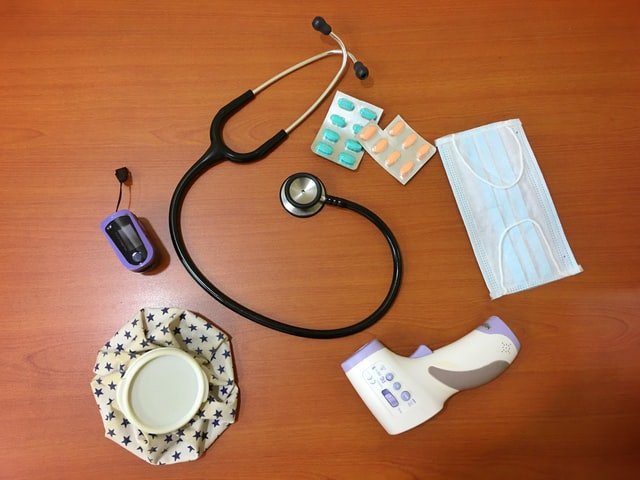2 Acute Common Diseases- Know How to prevent or Manage Them
Common Diseases that commonly affect us
What is this article all about?
In this article I am going to discuss all the common diseases which cause illness for a short period of time. Sometimes these diseases can be serious enough to land you in a hospital.
The aim of this article is to make you understand these common diseases and help you prevent them or guide you to take further action.
Here we will discuss
- the causes,
- the signs and symptoms,
- methods to prevent and, if you do get it,
- how to treat it.
So, my suggestion is to read and re-read this article so that you know when you should visit your family physician.
What are these common diseases?
There are many common diseases out there in our environment. Many of us suffer from one disease or many diseases at the same time but may be totally unaware of what it might be. What if you know what it is and also know how to tackle it?
The different types of common diseases-
There are two types of common diseases, namely-
- Acute common diseases
- Chronic common diseases
You can refer to this short table to know what they are-
Types of Common Diseases
| FEATURES ↕↕↕ | ACUTE COMMON DISEASES | CHRONIC COMMON DIDEASES |
|---|---|---|
| DURATION | SHORT-about one to two weeks | LONG-more than 2 weeks to months |
| TYPES | 1] VIRAL 2]BACTERIAL 3]PARASITIC 4]SEPTIC | 1]BACTERIAL 2]PARASITIC 3] METABOLIC 4]INFLAMMATORY |
Why should you know these diseases?
Knowing what disease {or diseases} you may have is the first step towards its prevention or management. There are many diseases that go unnoticed until you have some or the other complications, e.g., chronic kidney disease or CKD. My mother had it, and we did not know about it until one fine day she started vomiting, which would not stop with any anti-emetics (medicines to stop vomiting). Later on, we found that her serum creatinine was far higher than the normal of 0.6 to 1.04gm/ dl when we investigated her.
In this article, I am going to outline some of the acute common diseases we come across. We are going to discuss all the signs and symptoms of all the diseases mentioned. Not only will I be discussing how they present but also some tips on recognizing it on time so as to avoid them.
This post will teach you how to prevent these diseases and some tips on treating them at home [ home remedies] before approaching your healthcare professional.
We will discuss first the Acute ones and then the Chronic ones. Read on….
Acute Common diseases
These common diseases are termed acute because they start suddenly and also disappear within few days. Most of these conditions are caused by either viruses or bacteria or maybe a combination of both, for, e.g., common cold followed by pneumonia.
Acute common diseases can present as-.
- Viral Diseases
- Bacterial diseases
- Parasitic diseases
- Fungal diseases
We will discuss the common Acute Viral diseases in this post and the rest in my subsequent posts.
Common Viral Diseases-
Acute viral diseases present in many ways. A few of them are-
- The common cold
- Influenza (including COVID-19)
- Viral hepatitis
- Viral pneumonia
We will discuss 2 of them, namely-
- Common cold
- Acute Viral Hepatitis
A) The Common Cold
One of the most common viral diseases is the common cold. It is winter in most parts of the world at present. It is very common to find people sneezing and blowing their noses during this season. The symptoms are-
- Headache
- Mild to moderately high fever (100 to 102° F)
- Generalized body ache
- Sneezing
- Sore throat
- Coughing with or without phlegm or sputum.
Recently we have been going through an acute viral disease all over the world- the COVID-19 pandemic or the SARS-Corona virus disease. We have discussed this disease’s signs and symptoms in my past articles-click here to know more and here.
Prevention-
Avoid going close to a person, sneezes or having a cough. I always recommend having a hot soup like any vegetable soup (tomato soup is very good) for vegetarians and chicken- stock soup for non-vegetarians. They have a soothing effect on your throat if you are going in for a sore throat.
I also recommend gargling with warm salt water or povidone-iodine solution in half glass warm water at least 2 times a day.
Treatment of Common Cold-
In my regular practice, I prescribe these medicines for my patients-
- Paracetamol ( Pacimol, Dolo) in the strength of 250 to 650 mg depending upon the age of the patient and severity of the fever.
- Anti-cold tablets( Recofast plus, Sinarest)- 2 to 3 times a day
- Pain killer anti-inflammatory tablets ( Ibugesic, Combiflam, Nise)
- Antibiotics tablets or capsules (Almox 250, Doxy-1L) 2 to 3 times a day if the sputum is purulent (greenish yellow in color)
- A cough suppressant (Corex- Dx, Planokuf)
- Something to give the energy to fight the disease like Vital- Z or Enerzest powder to be taken with water.
I also advise a proper diet and complete bed rest to the patient for at least 3 days. Nowadays, due to a hectic life, patients do not get complete rest, and that worsens the illness.
You can listen to this short podcast to know more about the common cold.
Common cold and Allergic Rhinitis
There is a thin line differentiating a common cold from the cold of allergy, popularly referred to as allergic rhinitis.
B) Viral Hepatitis

Hepatitis is a disease affecting your liver. There are many types of diseases causing inflammation in the liver, such as alcoholic hepatitis, non-alcoholic liver disease, amoebic hepatitis, and viral hepatitis.
Viral hepatitis is the most common causing severe illness. There are many types of viral hepatitis, namely, A, B, C, D, E.
Out of these, we will take up Viral hepatitis A or HVA in short. This is the most common and the most dangerous of the lot. The signs/symptoms (S/S) can range from mild to very serious or fulminant, causing death.

Cause of HVA-
The route of the hepatitis virus into our body is known as the fecal-oral route. Meaning that the virus is shed in our stools. And if the person or a carrier is not hygienic, this is transmitted to others through food handled by these people, mostly street food vendors.
Contaminated food( mostly street food)due to common houseflies and contaminated water in the rainy season are a few of the other common causes.
You can watch this video to know more about the different types of viral hepatitis.
Sign and symptoms
Viral hepatitis starts out as influenza, causing mild to moderate fever, cold, cough, etc. It then progresses to other S/S of liver disease, such as-.
- Nausea and vomiting
- Loss of appetite
- Dark or yellow-colored urine
- Pain in right flank due to an enlarged liver
- Loose motions or sometimes, constipation
- The feeling of tremendous weakness
Investigations of HVA
Your doctor may suggest you the following investigations-
- CBC (complete blood checkup)- this may show a rise in white blood cells
- Liver function test or LFT– these may show a rise in all liver enzymes such as SGOT, SGPT, ALT and a rise in bile pigments and bile salt such as bilirubin.
- Urine routine and microscopic- this may show the presence of bile salts and pigments, as mentioned above.
- HbsAg- this is a blood test showing a specific antigen (a surface protein on the virus-cell) of Viral Hepatitis B disease.
Complications-
In fulminant HVA, the bile pigments can go and lodge in the brain, causing damage, known as hepatic encephalopathy. This usually causes coma and, ultimately, the death of the patient.
Prevention of Hepatitis-
We can easily prevent viral hepatitis by following these simple steps-
- Wash hands with a germicidal soap thoroughly before eating and after you attend nature’s call.
- Avoiding street food, mostly in the rainy season.
- Eat vegetables, fruits, etc., washed thoroughly, preferably by filtered water 💧 if it is known that there is hepatitis going around in your city or town.
- By vaccination- vaccines to prevent hepatitis are easily available and can be prescribed by your doctor. This article will help you know more about the different vaccines available to prevent viral hepatitis.
Treatment-
The treatment of different types of viral hepatitis varies according to severity.
There is no specific treatment for viral Hepatitis A. For Hepatitis B and C, there are a few anti-viral drugs available, namely-
- Lamivudine [ available as Lamivir HBV Tablet]
- Adefovir [available as Adesera 10 mg tablet]
*These drugs or medicines are prescription medicines and are to be taken only if your doctor prescribes it. For a detailed information on the medications mentioned above, visit this site-Drugs.com
If your doctor has prescribed any of these drugs, you can order them online by clicking on this llink.You can avail further discount by using this Promo code- PROMO9.
Alternatively, Hepatitis B can be cured by taking injections (💉) of a drug called pegylated interferon-alpha. This is given to those who progress to Chronic Hepatitis B. It is given weekly for 6 months.
Treatment for Hepatitis A
In the case of HPA, other than prevention (which is the best method), treatment consists of-
- Complete bed rest at home 🏡
- Avoid fatty and oily foods for a period of 1 to 2 months.
- High carbohydrate diet
- Proper hygiene, especially sanitation of hands after attending nature’s call to prevent spread among other family members.
In case the patient is having consistent vomiting and getting dehydrated, the best course is to admit him/ her to the hospital for taking intravenous fluids like 5% Dextrose or Dextrose Saline or Ringer Lactate.
I hope you have understood these two acute viral diseases. I will introduce you to a few Acute Bacterial diseases in my next article.
If you have liked this article, do spread the knowledge by clicking on the quote given below-
Good health is not something we can buy. However, it can be an extremely valuable savings account. Anne Wilson Schaef Share on XDisclaimer:-
The medicines mentioned in this article is for information purpose only and that which I prescribe to my patients on consultation. Drugs mentioned in this article should be consumed only after consulting your family physician or health care personal.
.



